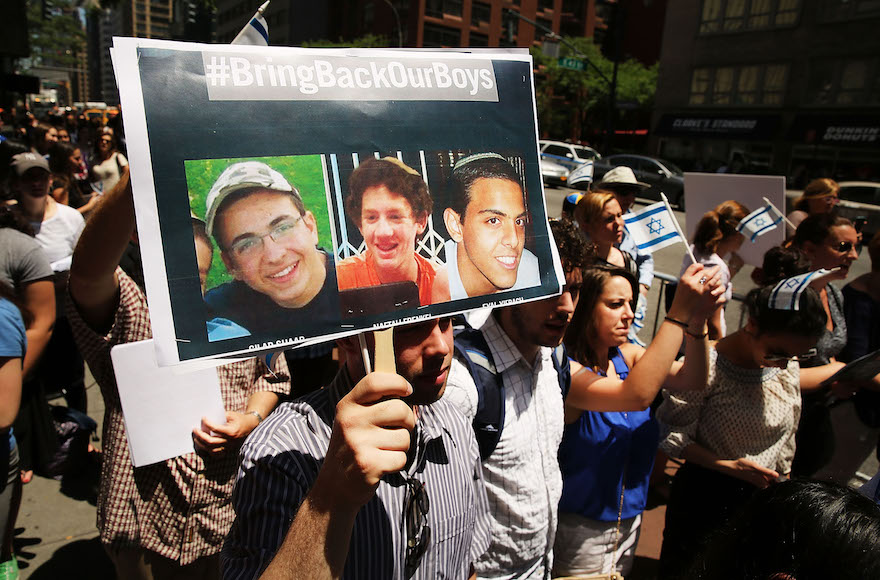JERUSALEM (JTA) — A U.S. appeals court challenged a judge who slashed the compensation claimed by the family of a Jewish teenager slain by terrorists and said the family took a risk by living in the West Bank.
The appeals court ordered her to reconsider her decision.
Judge Rosemary Collyer of the Washington, D.C., District Court had accepted a lawsuit filed against Iran and Syria by the family of Naftali Fraenkel, who was one of three teens kidnapped in June 2014 from a bus stop in the Etzion bloc of the West Bank. Their murdered bodies were found nearly three weeks later buried near Hebron.
On Tuesday, Yediot Acharonot cited quotes from the judge’s original verdict in 2017, which the Israeli newspaper said it recently obtained.
The judge said that the Fraenkels’ claim of $340 million in damages was inappropriate and lowered it to $4.1 million.
“The plaintiffs took on themselves the risks of living beyond Israel’s Green Line and sending Naftali Fraenkel another 40 km into the West Bank to a high school in Gush Etzion, six km from the city of Hebron,” Collyer wrote.
She also defended her decision to reduce the potential award by saying that Fraenkel was not murdered because he was an American citizen but because he was Jewish and Israeli. Fraenkel’s mother, Racheli, is an American citizen and he held dual Israeli and American citizenship.
“These facts do not diminish the plaintiffs’ grief or loss, but they can influence the assistance available to them when viewed through the lens of civil tort liability,” the judge wrote.
The family does not live beyond the Green Line, Israel’s 1967 borders, but right next to it in the community of Nof Ayalon near the Israeli city of Modiin.
Racheli Frankel told the Israeli newspaper that the judge’s original ruling is “outrageous.”
“The children were on their way from school. What responsibility did the boys have for their deaths?” she asked Yediot.
The family fought Collyer’s decision in the appeals court, which last month ordered the case to be sent back to the judge with instructions that the judge not blame the victim or where he lived and to increase the amount of compensation that can be requested.
Collyer is expected to make her new ruling soon.

Help ensure Jewish news remains accessible to all. Your donation to the Jewish Telegraphic Agency powers the trusted journalism that has connected Jewish communities worldwide for more than 100 years. With your help, JTA can continue to deliver vital news and insights. Donate today.






